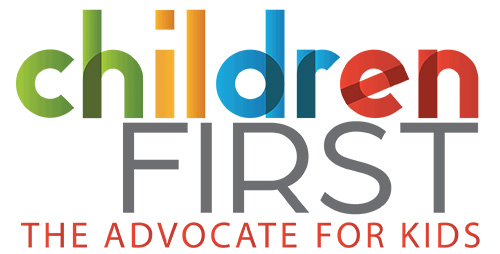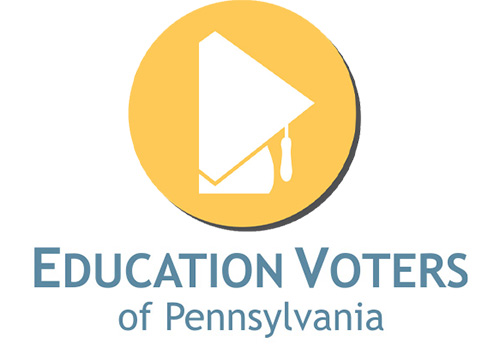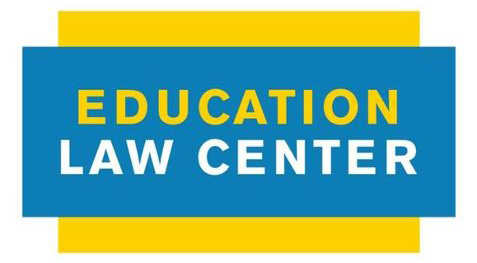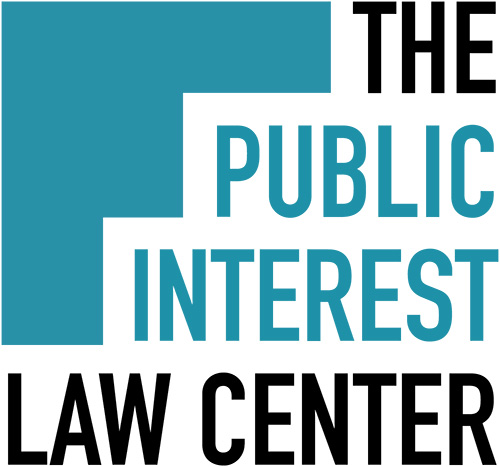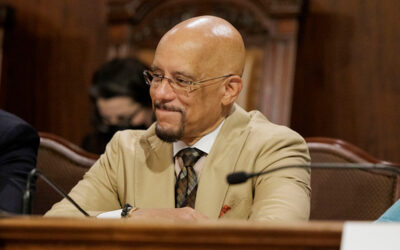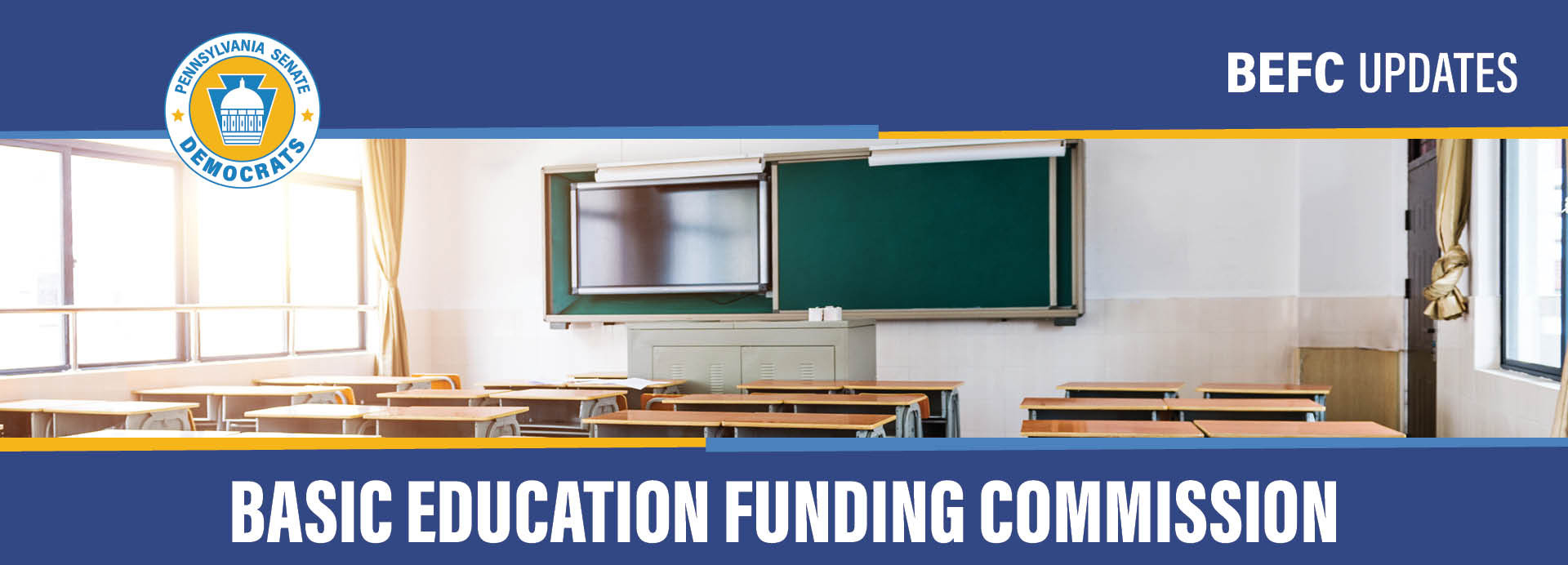
HB2370 – One Step Closer to Fixing PA’s Unconstitutional Education System
Basic Education Funding Commission 2024 Report
After 13 statewide public hearings, the Basic Education Funding Commission is proud to present it’s report featuring 8 key recommendations:
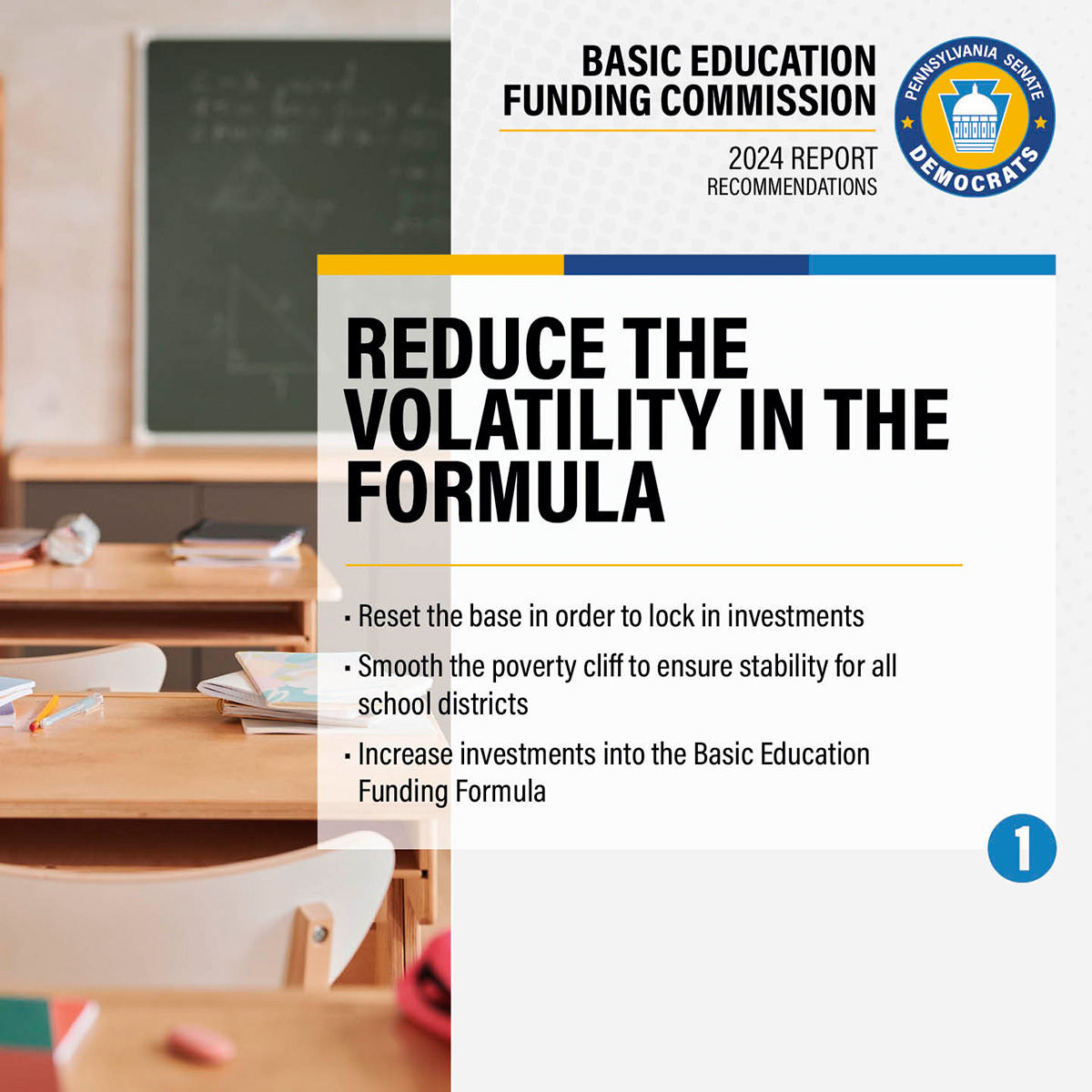
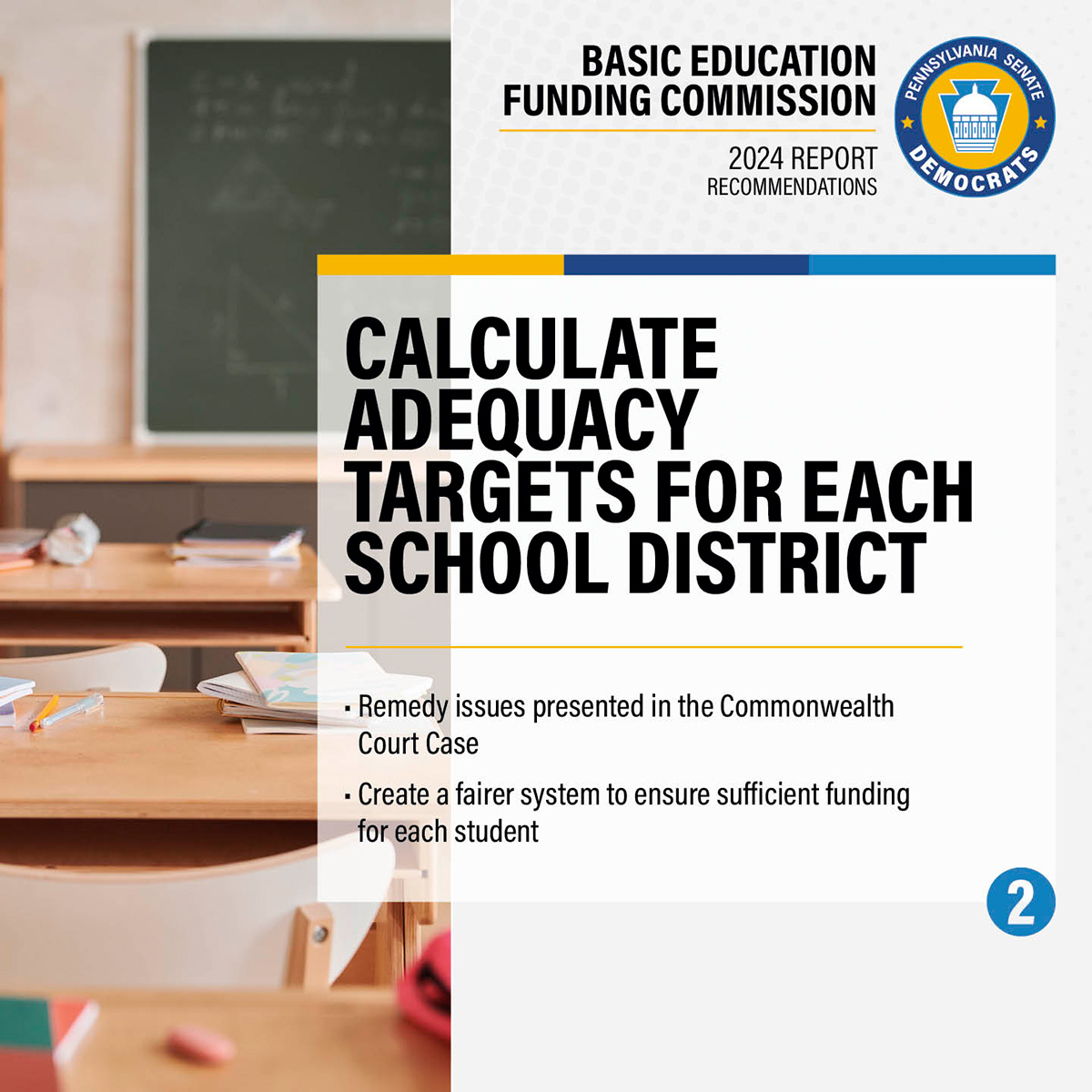
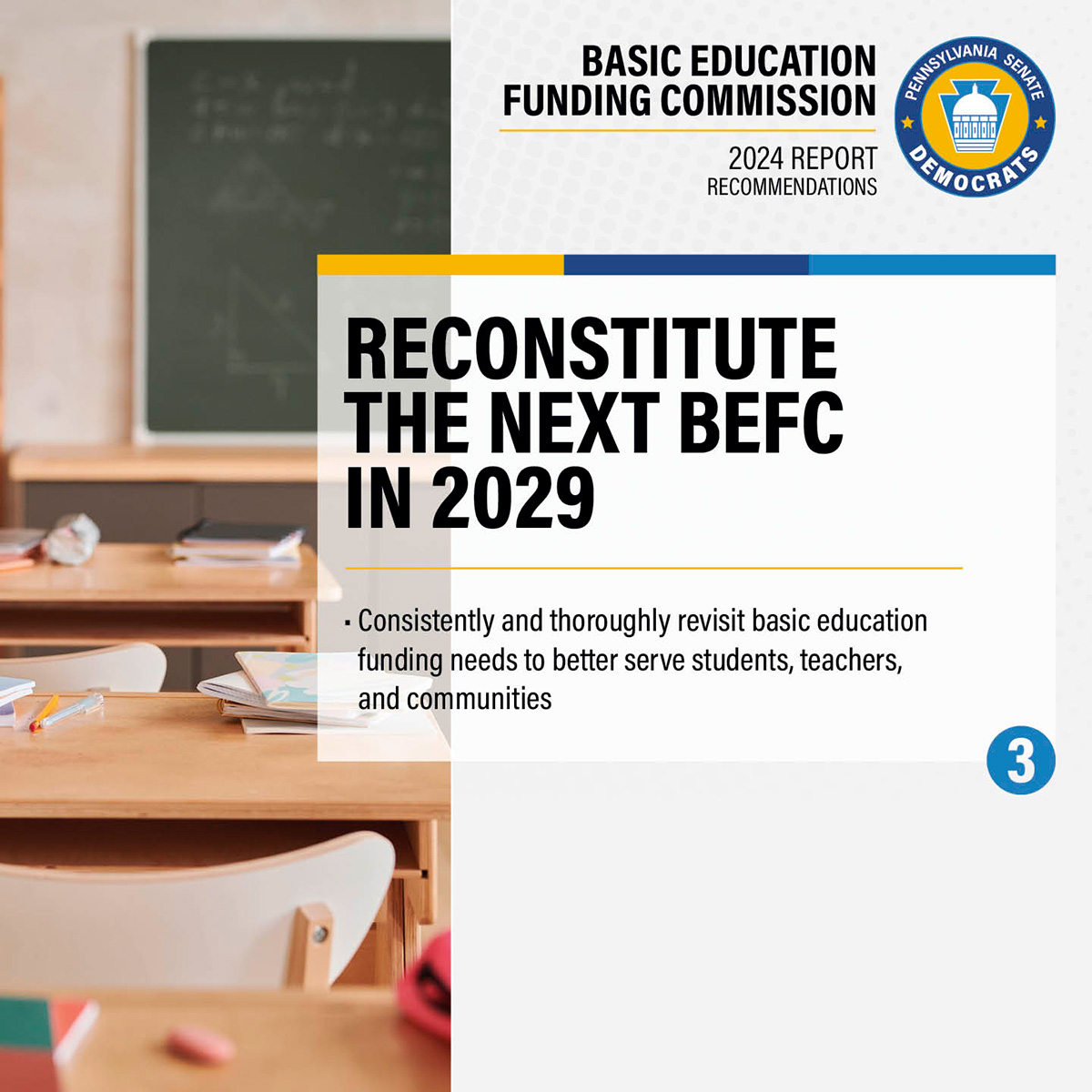
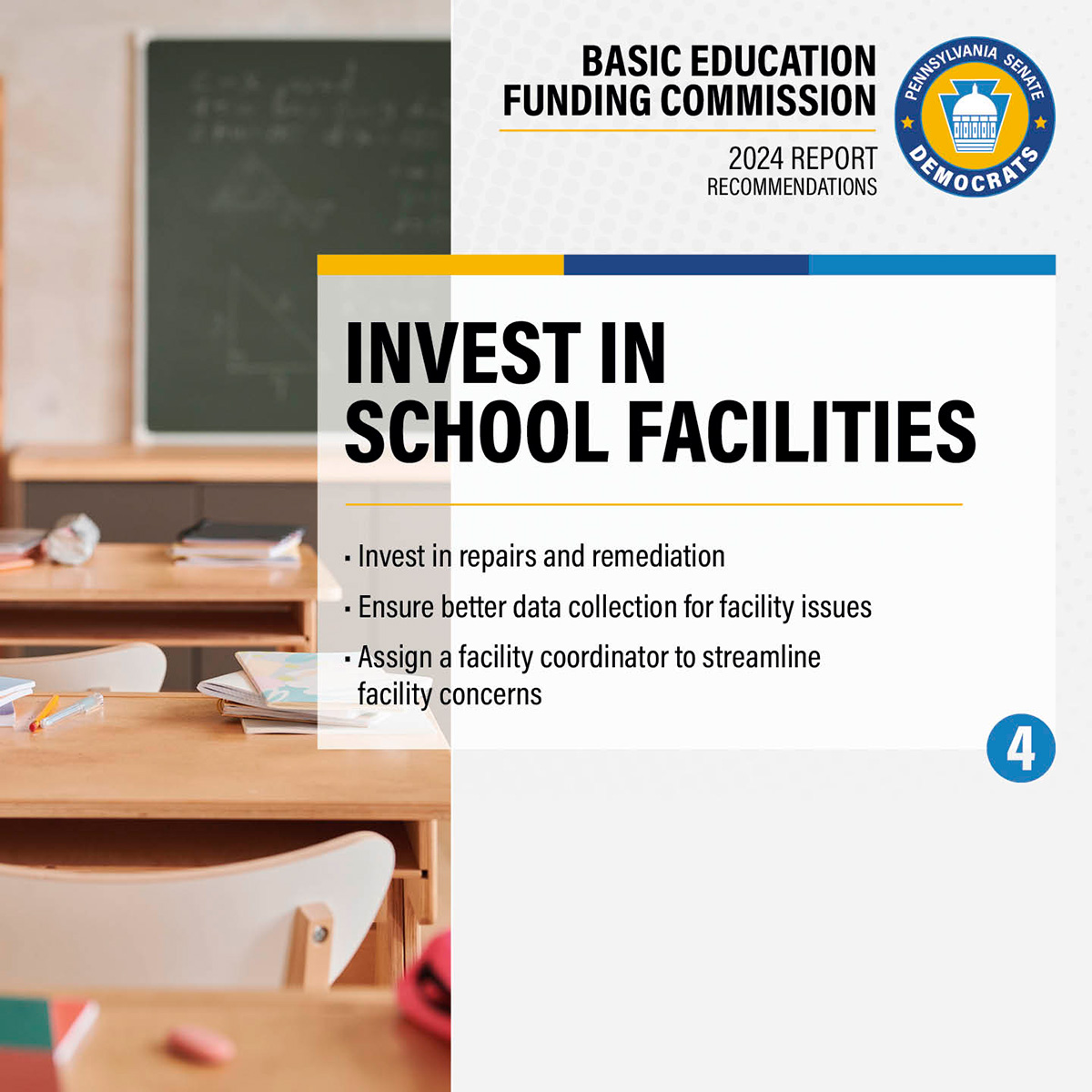
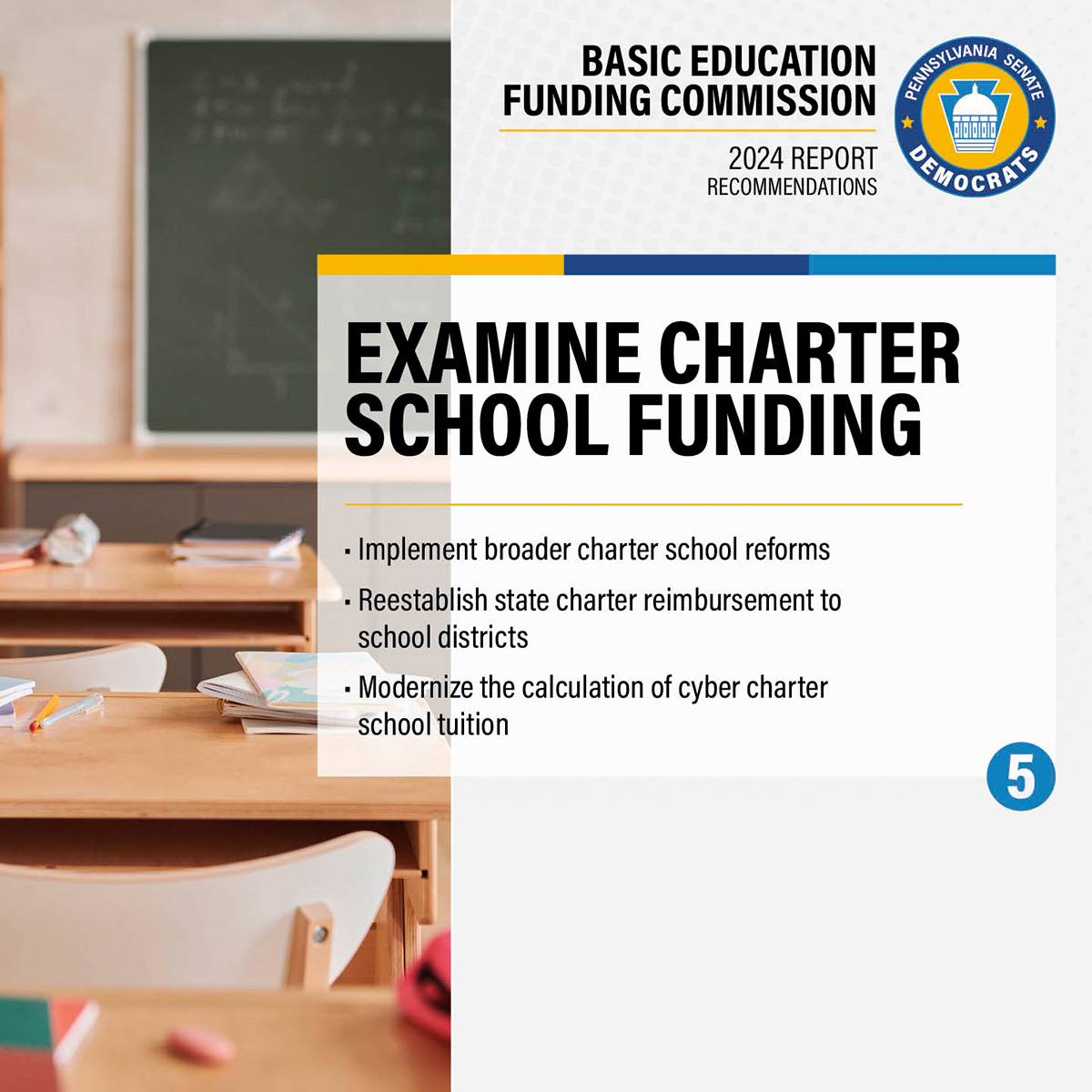

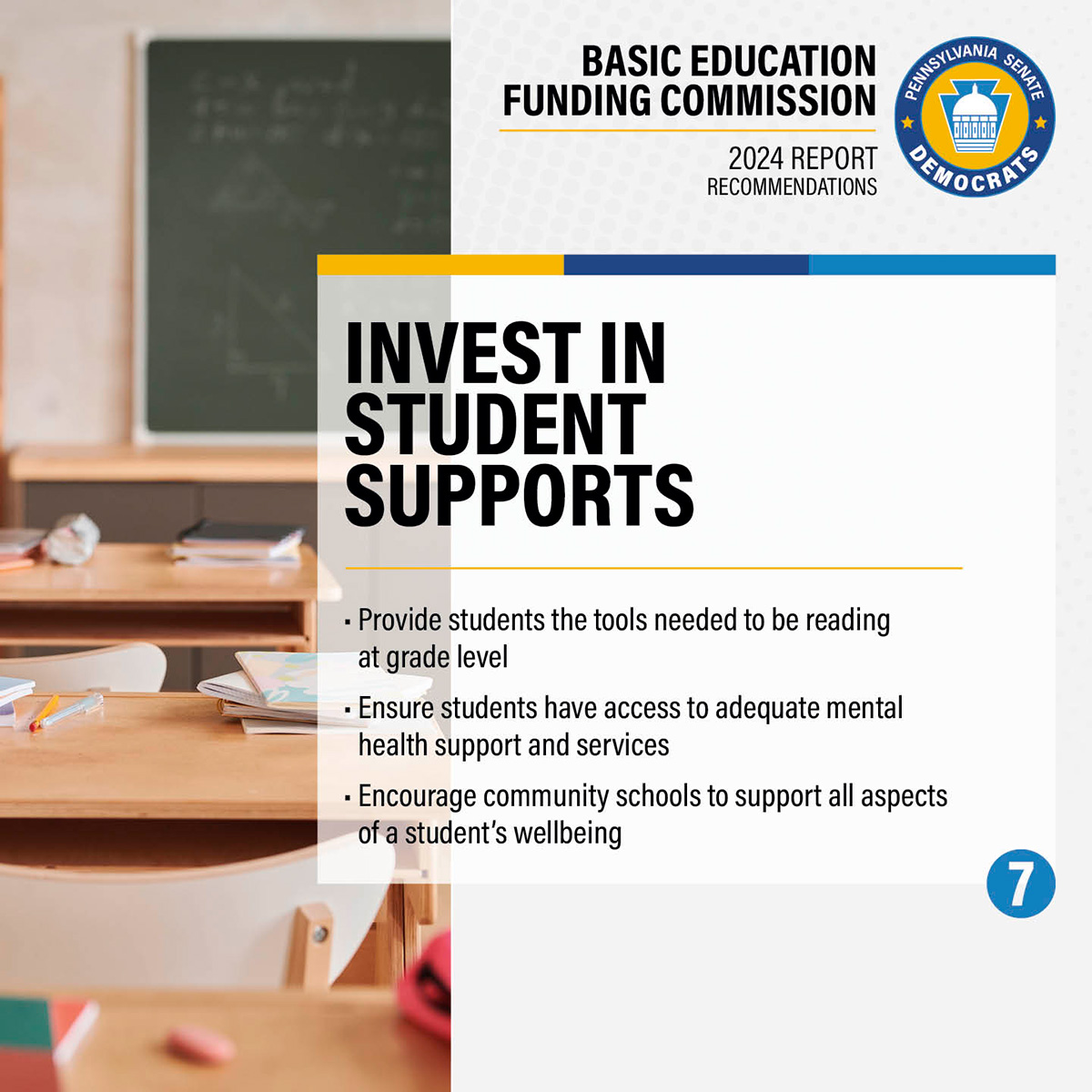
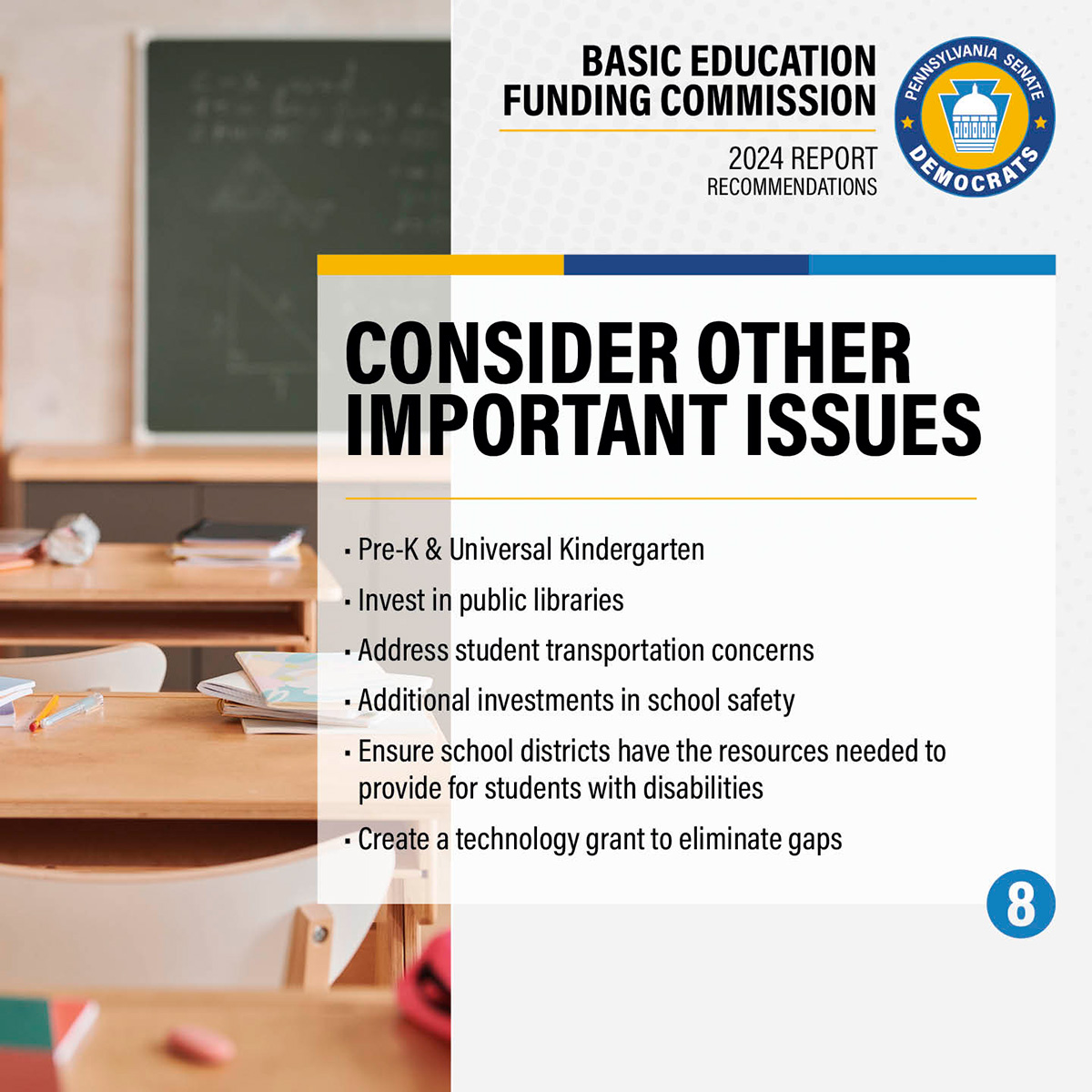
JOIN THE FIGHT FOR MORE FUNDING FOR OUR SCHOOLS
Contact your state lawmakers and Governor Shapiro to let them know you want our public schools fully and fairly funded!
Learn more about the fight to fix Pennsylvania’s unconstitutional education funding system:
What is the Basic Education Funding Commission
The Commission is a bipartisan group of state officials who are tasked with making recommendations about how to improve our system of funding public education.
The work of this Commission is an important part of addressing the Commonwealth Court decision in William Penn School District, et al. v. Pennsylvania Department of Education et al. In that case, Judge Jubelirer found that the General Assembly has failed to meet our constitutional duty to provide a “thorough and efficient system of public education” by both underfunding and unfairly funding public schools across Pennsylvania.
In order to fulfill our constitutional obligation, Pennsylvania public schools must have both adequate and equitable resources – like smaller class sizes, up-to-date textbooks, and safe school buildings – so that every child has a meaningful opportunity to succeed academically, socially, and civically.
History
The original BEF Commission was established in June of 2014. Its recommendations led to the enactment of the current Basic Education Funding Formula in 2015. You can download a copy of the last Commission’s full report, watch its hearings, and learn more about the 2014 Commission on their website.
The Commission was scheduled to reconvene five years later in 2020, but was postponed with a new due date of November 30, 2023 for its next report.
Current Commission Membership
The BEF Commission is made of 15 members— 4 Education Committee chairs, plus 2 additional legislators each from the four General Assembly Caucuses (House Democrats, House Republicans, Senate Republicans, and Senate Democrats), plus 3 members of the Administration.
| BEFC Membership (15 members – 3 from each caucus and 3 from the administration) | |
| May 2023 Commission | |
| Education Chairs * | |
| House Democrat | Rep. Pete Schweyer |
| House Republican | Rep. Jesse Topper |
| Senate Republican | Sen. David Argall |
| Senate Democrat | Sen. Lindsey Williams |
| At-Large (appointed by Speaker and Pro-Tempore in consultation with Caucus leaders) | |
| House Democrat | Rep. Mike Sturla (Co-Chair) |
| House Democrat | Rep. Mary Isaacson |
| House Republican | Rep. Jason Ortitay |
| House Republican | Rep. Ryan Warner |
| Senate Democrat | Sen. Vincent Hughes |
| Senate Democrat | Sen. Nick Miller |
| Senate Republican | Sen. Kristin Philips-Hill (Co-Chair) |
| Senate Republican | Sen. Greg Rothman |
| Administration | |
| PDE Secretary * | Dr. Khalid Mumin (designee Marcus Delgado) |
| PDE Deputy Secretary for Elementary and Secondary Education * |
Jeffrey Fuller (designee Angela Fitterer) |
| Gov. appointee from within administration | Natalie Krug (Budget Office) |
| * denotes a designee may serve | |
Basic Education Funding Commission Hearings
The Basic Education Funding Commission held hearings and received testimony on the current system of funding public education and what improvements can be made. At the end of this process, the Commission issued a report with recommendations. The General Assembly will now have to take legislative action to put any or all of these recommendations in place for the students and families of Pennsylvania.
Watch all hearings and view reports and testimony below.
Basic Education Funding Commission – 1/11/24
The Basic Education Funding Commission met to present findings and recommendations.
Final Reports
2023-24 Basic Education Funding Commission Report – Overview by Co-Chair Mike Sturla
2023-24 Basic Education Funding Commission Report – Overview by Co-Chair Kristin Phillips-Hill
Basic Education Funding Commission – 12/14/23
The Basic Education Funding Commission held a public hearing to present a presentation from the Independent Fiscal Office on school surveys.
Basic Education Funding Commission – 11/16/23
The Basic Education Funding Commission met to hear testimonies including discussion about charter schools, student services, early childhood education, and libraries.
Agenda & Testimony - November 2, 2023
Panel of Brick-and-Mortar Charter Schools
- Ryan Schumm, Executive Officer, Charter Choices
- Debi Durso, Member of Philadelphia Charters for Excellence Policy Committee and CEO/Principal of Green Woods Charter School
- Dr. Tina Chekan, CEO, Propel Charter Schools
Panel of Cyber Charter Schools
- Jane Swan, CEO, Reach Cyber Charter School
- Dr. Richard Jensen, CEO, Agora Cyber Charter School
- Mark Allen, CEO, Pennsylvania Leadership Charter School (PALCS)
Panel Three
- Dr. Adam Oldham, LPC, NCSC, High School Counselor, Pennsylvania Coalition of Student Services Associations
- Christi Buker, CAE, Executive Director, Pennsylvania Library Association
- Angela Marks, Founder, Reading Allowed
- Susan DeJarnatt, Professor of Law, Temple University Beasley School of Law (Zoom)
Additional Testimony
Basic Education Funding Commission – 11/9/23
The Basic Education Funding Commission met to hear testimonies that include discussion about school district shared services, statewide population forecasts and the perspectives of teachers.
Agenda & Testimony - November 9, 2023
Panel #1:
- Mr. Aaron Chapin, PSEA President
- Mr. Mark Price, PSEA, Director of School Funding
- Mr. Sidney M. Clark, PCSBA
- Business Manager/Board Secretary for Shanksville-Stonycreek SD;
- Somerset County TCC ChairPerson;
- and Mid-State PASBO Secretary/Treasurer
Panel#2:
Basic Education Funding Commission – 11/2/23
The Basic Education Funding Commission met to hear testimonies that include discussion about how school tax structures affect Pennsylvania businesses and taxpayers.
Agenda & Testimony - November 2, 2023
Alex Halper, Vice President, Government Affairs, PA Chamber of Business and Industry
Nathan Benefield, Senior Vice President, Commonwealth Foundation
The School Property Tax Elimination Working Group
Basic Education Funding Commission – 10/12/23
The Basic Education Funding Commission met to hear testimonies that include perspectives of rural school districts and adequate school funding.
Agenda & Testimony - October 12, 2023
ExcelinEd
Pennsylvania Association of Rural and Small Schools (PARSS)
Panel 1
- Dr. Gary Peiffer, Superintendent, Chartiers Houston School District
- Dr. Keith Hartbauer, Superintendent, Brownsville Area School District
- Dr. Donald Martin, Executive Director, Intermediate Unit #1
Panel 2
Basic Education Funding Commission – 10/11/23
The Basic Education Funding Commission met to hear testimonies that include discussion of career and technical education, early childhood, special education, and student services.
Agenda & Testimony - October 11, 2023
Panel One:
- Angela Mike, Executive Director of CTE, Pittsburgh Public Schools
- Dr. Darby Copeland, President of Pennsylvania Association of Career & Technical Administrators and Executive Director of Parkway West
Panel Two:
- Dr. Robert Scherrer, Executive Director, Allegheny Intermediate Unit
- Emily Neff, Director of Public Policy, Trying Together
- Jeni Hergenreder, Esq., Staff Attorney, Disability Rights Pennsylvania
- Dr. Laura Ward, Past-President, Pennsylvania School Librarians Association and Librarian at Fox Chapel Area School District
Basic Education Funding Commission – 10/5/23
The Basic Education Funding Commission met to hear testimonies that will include input from School Directors and educational needs of English Language Learners.
Agenda & Testimony - October 5, 2023
Pennsylvania School Boards Association
AIA PA
Hazleton School District
La Casa Dominicana de Hazleton Inc.
Hazleton Integration Project
- Bob Curry, Co-founder, Hazleton Integration Project
- Rossanna Gabriel, Executive Director, Hazleton Integration Project
Basic Education Funding Commission – 9/28/23
The Basic Education Funding Commission met to hear testimonies including the discussion of trends in basic education funding formula factors.
Agenda & Testimony - September 28, 2023
Pennsylvania Association of School Business Officials
Pennsylvania Association of School Administrators
- Dr. Sherri Smith, Executive Director
- Dr. Jay Burkhart, Superintendent, South Western School District
- Dr. Nathan Van Deusen, Superintendent, South Eastern School District
Documents
Basic Education Funding Commission – 9/21/23
The Basic Education Funding Commission met to hear testimonies including the discussion of equity and perspectives of teachers, local school district, and the community.
Agenda & Testimony - September 21, 2023
Panel One
- David Lapp, Director of Policy Research, Research for Action
- Marc Stier, Executive Director, Pennsylvania Policy Center
Panel Two
- Laura Boyce, Pennsylvania Executive Director, Teach Plus
- Kristen Haase, Senior Policy Fellow and SDOL Teacher, Teach Plus
- Dominque Botto, Leader, POWER Interfaith
- Brenda Morales, Leader, POWER Interfaith
- Reverand Dr. Gregory Edwards, Chief of Staff, POWER Interfaith
Panel Three
Basic Education Funding Commission – 9/14/23
The Basic Education Funding Commission met to hear testimonies including the discussion of perspective of local superintendents and teachers and impact of trauma on learning.
Agenda & Testimony - September 14, 2023
Panel One:
- Dr. Tony Watlington, Superintendent, School District of Philadelphia
- Christopher Dormer, Superintendent of Norristown School District
Panel Two:
- Arthur Steinberg, President, American Federation of Teachers-PA
- Jerry Jordan, President, Philadelphia Federation of Teachers
- Ashley Cocca, School Counselor, School District of Philadelphia
- Fatoumata Sidibe, Student, William W. Bodine High School
Panel Three:
- Donna Cooper, Executive Director, Children First
- Dr. Joan Duval Flynn, Chairperson, Trauma Informed Education Coalition
- Mary Beth Hays, Director of Philadelphia Healthy and Safe Schools, Temple University
- Dr. Shawn Ginwright, Founder and CEO, Flourish Agenda
Written Testimony Only:
Basic Education Funding Commission – 9/13/23
The Basic Education Funding Commission met to hear testimonies on the Commonwealth Court’s ruling that PA’s school funding system is unconstitutional and how other states are handling school funding.
Agenda & Testimony - September 13, 2023
Basic Education Funding Commission – 9/12/23
The Basic Education Funding Commission met to hear testimonies on a new study regarding adequate school funding, perspective of local superintendents, and school facilities’ environmental impact.
Agenda & Testimony - September 12, 2023
Basic Education Funding Commission – 6/7/23
The Basic Education Funding Commission held a public hearing to review a presentation provided by the PA Department of Education on the basic education funding formula.
Basic Education Funding Commission – 5/10/23
The Basic Education Funding Commission held met to introduce members, elect co-chairs, and Review of BEFC, Pursuant to Section 123 of the Public School Code.
Statement of Basic Education Funding Commission Members, Senator Vincent J. Hughes and Senator Nick Miller on Adoption of Commission Report
“Education is a fundamental right guaranteed by the Pennsylvania Constitution to all school-age children residing in the Commonwealth. “
President Judge Renee Cohn Jubelirer
Commonwealth Court of Pennsylvania
William Penn School District v. PA Department of Education February 7, 2023
With that one sentence, 19 simple words, Commonwealth Court President Judge Renee Cohn Jubelirer became the first Pennsylvania judge in history to expressly declare that ALL Pennsylvania children have a fundamental, constitutional right to learn in a “comprehensive, effective and contemporary system of public education.”
Those 19 words, part of Judge Jubelirer’s historic 782-page opinion in William Penn School District v. Pennsylvania Department of Education, are clear and unequivocal. They are indisputable and long overdue. Those 19 words will change the lives of millions of school children – both now and in future generations, if the legislative and executive branches can meet the moment.
Judge Jubelirer’s ruling also included a mandatory call to action for elected officials to fix the unconstitutional mess that is our school funding system stating:
“It is now the obligation of the Legislature, Executive Branch, and educators, to make the constitutional promise a reality in this Commonwealth. “
It is against this backdrop that this Basic Education Funding Commission (BEFC) reconvened in May 2023. The BEFC held 13 public hearings around the state to gather input from experts on the William Penn decision, the operation of the current basic education funding formula, and several broader basic education funding issues.
The evidence is clear and now judicially confirmed Pennsylvania’ school funding system is unconstitutional because it discriminates against children in poorer school districts. For those who have spent years fighting for public education funding, the ruling confirmed what we have always known ALL kids, no matter their zip code, have a fundamental right to an education that provides them with an opportunity to succeed. The ruling also confirmed the commonwealth violated, and continues to violate, the constitutional rights of millions of children due to an inadequate and inequitable education funding system.
For decades, Pennsylvania’s school funding system has failed Pennsylvanians.
It’s failed millions of children in low-income school districts across Pennsylvania, from Erie to Chester, Indiana to Pottsville, Scranton to Mckeesport, Lancaster to Johnstown, and Philadelphia to Monessen.
It’s failed urban kids, suburban kids, and rural kids. Black kids, brown kids, and, yes, white kids too.
It’s failed parents, educators, employers, and countless others impacted by underfunded schools.
For far too long, Pennsylvania has shortchanged our kids and denied them the resources necessary to realize what Judge Jubelirer decreed the constitution guarantees them the right to “receive a meaningful opportunity to succeed academically, socially and civically…”
The Commission’s failure to reach bi-partisan consensus is frustrating but not surprising given the broad range of viewpoints held by commission members. We appreciate the work of Co-Chairs Phillips-Hill and Sturla and the tireless efforts of staff to navigate this complex issue. While not embraced by all commission members, it is our hope that the report adopted today serves as the foundation for righting this decades old wrong.
Bringing our education funding system into constitutional compliance is no easy task. It will take bipartisanship and a return to a time where elected officials talk to each other, not at each other. It will take compromise and sacrifice. It will take patience. It will take time. And, yes, it will take money.
As reflected in the commission’s report, we took Judge Jubelirer’s call to action, and our responsibility as members of the Basic Education Funding Commission, seriously. Going forward, we believe working together we can make substantial investments to improve academic performance, fix our toxic schools, get more teachers in the classrooms, and ensure students have the counselors and mental health resources they need. Done correctly, we will give our students hope and a path to a brighter future.
To be clear, the report adopted today is the first step to remedying our unconstitutional funding system. Its adoption does not end our work. The report is an appropriate initial response to the William Penn decision and delaying its approval in pursuit of the “perfect” was not an option.
Much work still needs to be done. As Dr. Martin Luther King, Jr. said in his “I Have A Dream” speech, “[t]his is no time to engage in the luxury of cooling off or to take the tranquilizing drug of gradualism.” Our work must continue with what Dr. King called the “fierce urgency of now.” We believe that work includes:
- Accountability for Adequacy Dollars. – Providing billions in new funding to school districts, school board members and administrators without providing them with adequate preparation, direction, or goals regarding accountability and outcomes arguably sets them up for failure. We need to incentivize or require the districts to use any adequacy funding in the following manner:
- For Classroom Instruction (e.g., technology and equipment purchases) and General Operating Expenditures, including continuing education and training for local officials and administrators.
- For Teacher Supports, including addressing the teacher shortfall and pipeline issues.
- For Student Supports (e.g., summer reading programs, after school programs, mentoring programs, etc.)
- For Student Health and Safety Initiatives (e.g., mental health initiatives, antiviolence initiatives, security upgrades, etc.).
- School Infrastructure — School conditions were a repeated topic of conversation at commission hearings. The fact that buildings must close because of a lack of heat or air conditioning is unacceptable in 2()23. While the $300M proposed in the report is a significant downpayment, we need to explore additional revenue sources to deal with school infrastructure needs. Those options could include transfers from surplus funds and issuing bonds to address the issue.
- Charter School Reimbursement and Funding Reform. — Charter school funding costs also received considerable attention at committee hearings. We consistently heard that we must reduce the financial burdens school districts face from charter schools. We believe we should reinstate the former Charter School Reimbursement appropriation and finally reform our charter school law, which has been referred to as “one of the worst in the nation.” Governor wants to take Pa.’s charter school law from among nation’s worst to I of its best lehighvalleylive.com; charter school law ‘worst in US state auditor general says – WHYY. The charter reimbursement appropriation began in the Rendell Administration and eventually exceeded $200M. It was eliminated during the Corbett Administration. Not surprisingly, charter school costs have exploded in the intervening years. We support a significant investment in this area as school district charter school costs hover around $3 billion annually.
- Student Supports — While COVID-19 turned Pennsylvania’s education system on its head, its conclusion revealed an “academic pandemic” in our K-12 education system. This pandemic isn’t new, having existed for generations in urban, suburban, and rural Pennsylvania school districts. Many of us were aware of it before Covid hit but now many more recognize it as schools continue to navigate a post-Covid world.
The sudden shift to virtual learning in response to the pandemic undoubtedly saved lives but also laid bare the reality that many districts and families lack basic tools to offer or use distance learning — computers and internet access.
Moving away from in-person learning had a cost as teachers and students saw their mental health impacted as Covid wreaked havoc on academics and social interactions. Rates of anxiety and depression reached record levels.
Students just entering school have seen their development lag far behind because beginning pre-k and kindergarten during COVID negatively impacted their ability to learn the foundational skills typically developed at the start of a student’s academic career.
Student reading skills and literacy also suffered. Grade level reading rates in certain districts across the commonwealth are abysmal. We are facing a reading and literacy emergency. In 2022-2023, nearly half of Pennsylvania fourth graders were not reading at grade level. That is unacceptable. Research shows that students who aren’t reading at grade level by grade 3 are likely to remain behind and eventually drop out of school. That too should be unacceptable.
These students need our support. We need substantial investments in summer reading and literacy programs, after school programs, and mentorship and anti-violence programs. We need to expand on Governor Shapiro’s free breakfast initiative to include lunch and to provide access to meals for children on summer break. Our kids need the tools to be successful and we need to provide school districts with funding to provide them.
Teacher Supports The investments recommended in this report will fail if we don’t have enough teachers, educators, and support staff to implement them. Pennsylvania is facing a teacher shortage that has reached crisis levels. Just ten (10) years ago, Pennsylvania graduated 22,000 teachers. In 2023, that number dropped to 6,000. - Teacher Supports The investments recommended in this report will fail if we don’t have enough teachers, educators, and support staff to implement them. Pennsylvania is facing a teacher shortage that has reached crisis levels. Just ten (10) years ago, Pennsylvania graduated 22,000 teachers. In 2023, that number dropped to 6,000.
As we sit here today, Pennsylvania does not have enough teachers to provide our children with the education to which they are constitutionally entitled, let alone to handle the responsibilities and transformative change that will come with billions in new investment. We must create a series of programs to attract new teachers, retain existing ones, and make the teaching profession attractive again. Areas may include recruitment and retention bonuses, teacher diversity programs, scholarships, student teacher stipends, student loan forgiveness and more.
Teaching is a noble profession. Our teachers deserve to be treated with respect and dignity, not slandered by extremists with ridiculous claims of “indoctrination” and sick accusations of “grooming.” Investing in teachers and teacher supports is the lynchpin of improving our education system. Even if the General Assembly implements all the recommendations in this report, if we don’t invest in the professionals who will carry out the mission, we will have wasted our time and the taxpayers’ money and compliance with Judge Jubelirer’s order will be impossible.
In his March 2023 budget address Governor Shapiro called on the General Assembly to respond to the William Penn decision with “hope and ambition because this is a once-in-a-lifetime opportunity to do right by our kids. We agree. The report adopted today begins that process. It’s time to get to work.
News
Senators Hughes and Miller Say Basic Education Funding Commission Report is “Just a Start”
January 15, 2024 − Senators Vincent Hughes (D-Philadelphia/Montgomery) and Nick Miller (D-Lehigh/Northampton), two Senate members of the Basic Education Funding Commission, issued a statement following the release and affirmative vote on the Commission’s report that...
Advocates who won Pa. education lawsuit call for a $2 billion ‘down payment’ on fair funding
Advocates who fought for and won a historic court ruling declaring Pennsylvania’s education funding system unconstitutional said Thursday that they’re ready to go back to court if state lawmakers and Gov. Josh Shapiro fail to make a significant down payment on a...
Basic Education Funding Commission Hearing
Pennsylvania commission on public school funding holds hearing at Pittsburgh’s Westinghouse Academy
PITTSBURGH — A bipartisan commission is trying to improve the system of funding public education in Pennsylvania. The Basic Education Funding Commission held a hearing Wednesday at Westinghouse Academy in Pittsburgh's Homewood neighborhood. State Sen. Lindsey...
Sen. Lindsey Williams Hosts Pittsburgh Basic Education Funding Commission Hearing
Pittsburgh, Pa. − October 11, 2023 − Senator Lindsey M. Williams (D-Allegheny), Minority Chair of the Senate Education Committee, hosted the Basic Education Funding Commission for their Pittsburgh hearing, the first in the series of state-wide hearings to be held in...
Basic Education Funding Commission Hearing
State Senators learn what programs Pittsburgh Public Schools stands to lose without adequate funding
PITTSBURGH — Pittsburgh Public Schools’ Career and Technical Education, or CTE program, offers kids 16 vocational programs across six of its high schools. “They are starting from so far behind and they have to overcome so much to get what their other peers already...
Pa.’s school funding model inhibits career and technical education growth, educators tell lawmakers
Lawmakers with the state’s Basic Education Funding Commission (BEFC) heard testimony Wednesday in Pittsburgh on the needs of high school career and technical (CTE) programs. Surrounded by fire engines, ambulances and police vehicles used by Pittsburgh Public Schools’...
Pittsburgh educators share needs of western Pennsylvania schools with state commission
As part of a series of statewide hearings on education funding in Pennsylvania, lawmakers heard from educators in Pittsburgh on Wednesday, who told them of the needs that schools in western Pennsylvania have, including special education funding, pre-kindergarten...
Stephen Herzenberg: Pa. must invest in career-related learning for high school students
This week, the state’s Basic Education Funding Commission (BEFC) will meet in Pittsburgh to gather testimony from educators and education advocates on the state of public education in Pennsylvania. Considering the Commonwealth Court’s ruling this year declaring the...
Documents
2023-24 Basic Education Funding Commission Report – Overview by Co-Chair Mike Sturla
2023-24 Basic Education Funding Commission Report – Overview by Co-Chair Kristin Phillips-Hill

